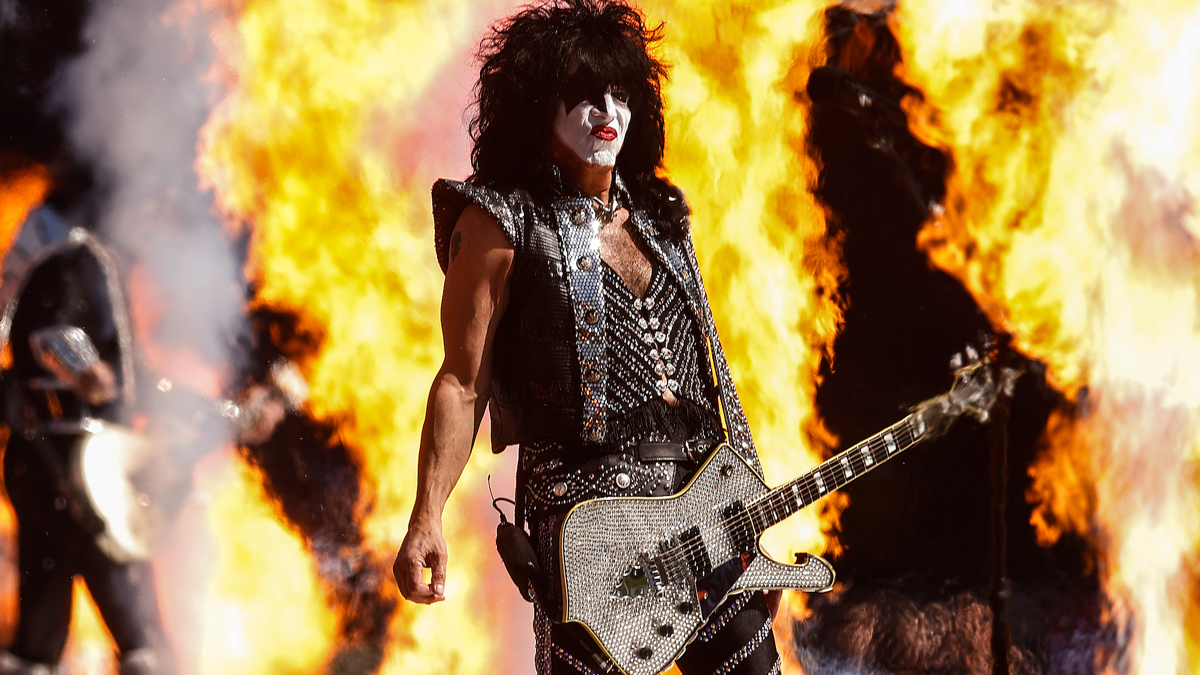
For 50 years, Paul Stanley has stood beside some of the more idiosyncratic lead guitarists in the classic rock world. But it's Stanley's immense rhythm chops that laid the bedrock for Kiss's sound, and have powered everything they've done since.
“I always wanted the band to have a sound that I've often referred to as, 'One big guitar,'” Stanley tells Guitar World. “In other words, it would be two guitar players, who together would make a singular sound through different yet congruent voicings.
“I saw bands like The Who and Humble Pie, and they inspired me. Those were guitar-propelled bands and were forces to be reckoned with. But it was the rhythm guitar that, when done properly, wasn't a knock on somebody who wasn't a lead guitarist, but the work of a person comfortable with the idea of working to be proficient at that specific skill.”
Stanley's viewpoint on guitar isn't only logical but downright illuminating. It's no secret that guitar is a competitive space, which is often more about keeping up with the guitarist beside you, rather than doing what you're best at. But Stanley, ever workmanlike, never saw it that way.
“With some lead players, what's missing is the mentality of being proficient,” he says. “If you ask them to take over rhythm, they just can't do it. It's like they learned to run before they could walk [laughs].”
Pragmatic as he is, that's not to say that when given the chance, Stanley doesn't enjoy taking a solo: “I love when the opportunity comes up to play a solo,” he admits. “But I never wanted the responsibility of having to do it all the time [laughs]. It's too much; I'd rather lead the orchestra and let the other guy do the tap-dance.”
Be it Ace Frehley, Vinnie Vincent, Mark St. John, Bruce Kulick, or Tommy Thayer, Kiss have had their fair share of legends on guitar over the decades. Their influence is undeniable, but in recent years, support has grown for Stanley's equally impactful exploits.
And Stanley, a man who has owned the grandest stages with class, confidence and swagger, knows this. Musing on his influence on Kiss and guitar-driven music, Stanley says, “This is in no way demeaning to any lead player, but it's hard to tap-dance if you don't have music. But I've always hoped to elevate and bring attention to the importance of a rhythm guitarist.”
To me, if you love playing guitar, don't just emulate who you love; find out who they love, and then listen to that. It's not always a matter of what you play but of what you know
“But it's interesting,” he continues. “I've had some well-known guitarists at my house, and inevitably, we'd start playing, and I remember a couple of them on different occasions saying, 'Hey, wow, you can really play!' They were surprised, which maybe made sense early in Kiss’s career, because back then, it was easy to be dazzled by what we do live and have my ability be overshadowed.
“But at this point, you'd have to be shortsighted and perhaps more than a little hard of hearing not to get what's going on. So, if you don't get it, then you've probably never seen Kiss.”
Even with Kiss winding down, Stanley says that his overall approach hasn't changed all too much over the years.
“My viewpoint hasn't changed too much,” he says. “I still believe in plugging a good guitar into a good amp. I've never been a fan of tapping, tricks, or whammy bars. And sure, there have been a few greats, like Edward Van Halen and Randy Rhoads, who did, but what they did came from somewhere. And there are a whole bunch of people who are clueless about where that came from, which is why you need depth. You've got to have a foundation outside of what you're doing.”
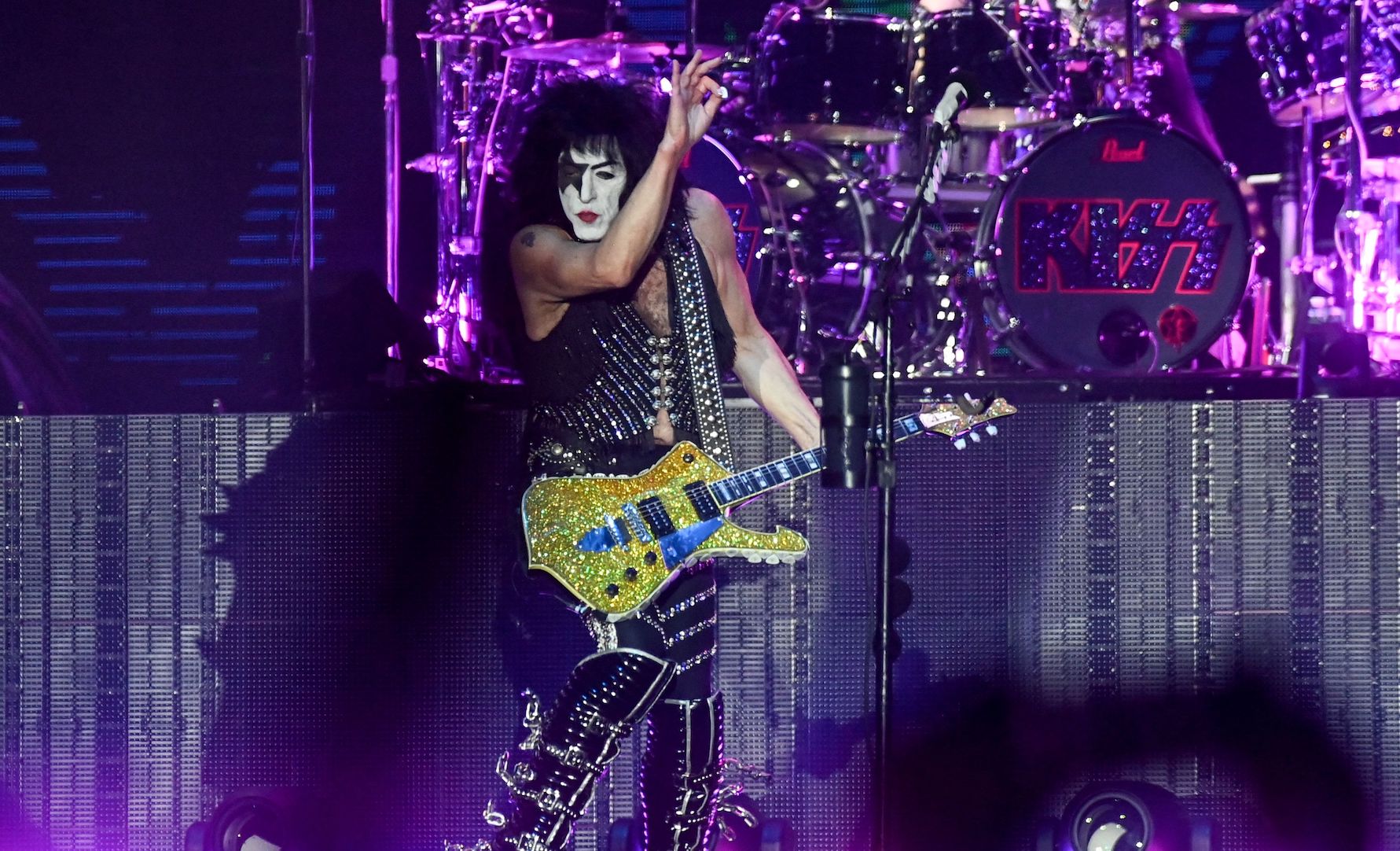
He concludes, “I remember being on the corner of Eight Street in New York City in the '70s, and a young Stanley Jordan was on the corner, busking for money. We'd all go out and see this guy because, man, he was the real deal. But people don't always see that viewpoint, meaning they don't go beyond Eddie and Randy to see where things come from.
“To me, if you love playing guitar, don't just emulate who you love; find out who they love, and then listen to that. It's not always a matter of what you play but of what you know.”
1. The Three Kings (Albert, Freddie, and B.B.)
“In terms of routes, whether I applied them fully, I have to start with Albert, Freddie, and B.B. King. It's not a matter of whether you emulate the players who inspired you; it's that you ingest what they do and let that become a part of reference and vocabulary. I've always thought that if you listen to only one type of music, that one type of music becomes incestuous to what you're doing, and you won't bring anything new to what you're doing.
“Once I got past Eddie Cochran and that era, I was a folkie with a harmonica around my neck. But I was also into Albert, Freddie, and B.B., along with guys like Sonny Terry, Brownie McGehee, Junior Wells, and Buddy Guy. To me, there's two kinds of music – good and bad – you're malnourished if you only listen to one.”
2. Jimmy Page

“Jimmy Page, to me, is the consummate guitarist. He's Beethoven. He paints with music in a way that's just so stellar. And I know there's a lot of British guitar players that we talk about where people say, 'Who is better, this guy, or that guy?' Well, I'll tell you this – there's only been one of those players who has been able to spread and work outside of the idea of what he was initially defined as, and that's Jimmy.
“He's not rock or metal; he's true world music that encompasses so much. His love of music is palpable; he's an amazing showman and a consummate all-around lead and rhythm guitar player.”
3. Pete Townshend
“Pete Townshend is someone who clearly prefers most of the time to steer away from flashy solos. All his songs are pretty much chord-driven, whether they're inversions or not, they're based on chords.
“That's something that I've always taken to heart and worked to apply in my own playing. He’s also a great showman, and a fantastic example of the importance of rhythm player, and not overplaying.”
4. Richie Havens
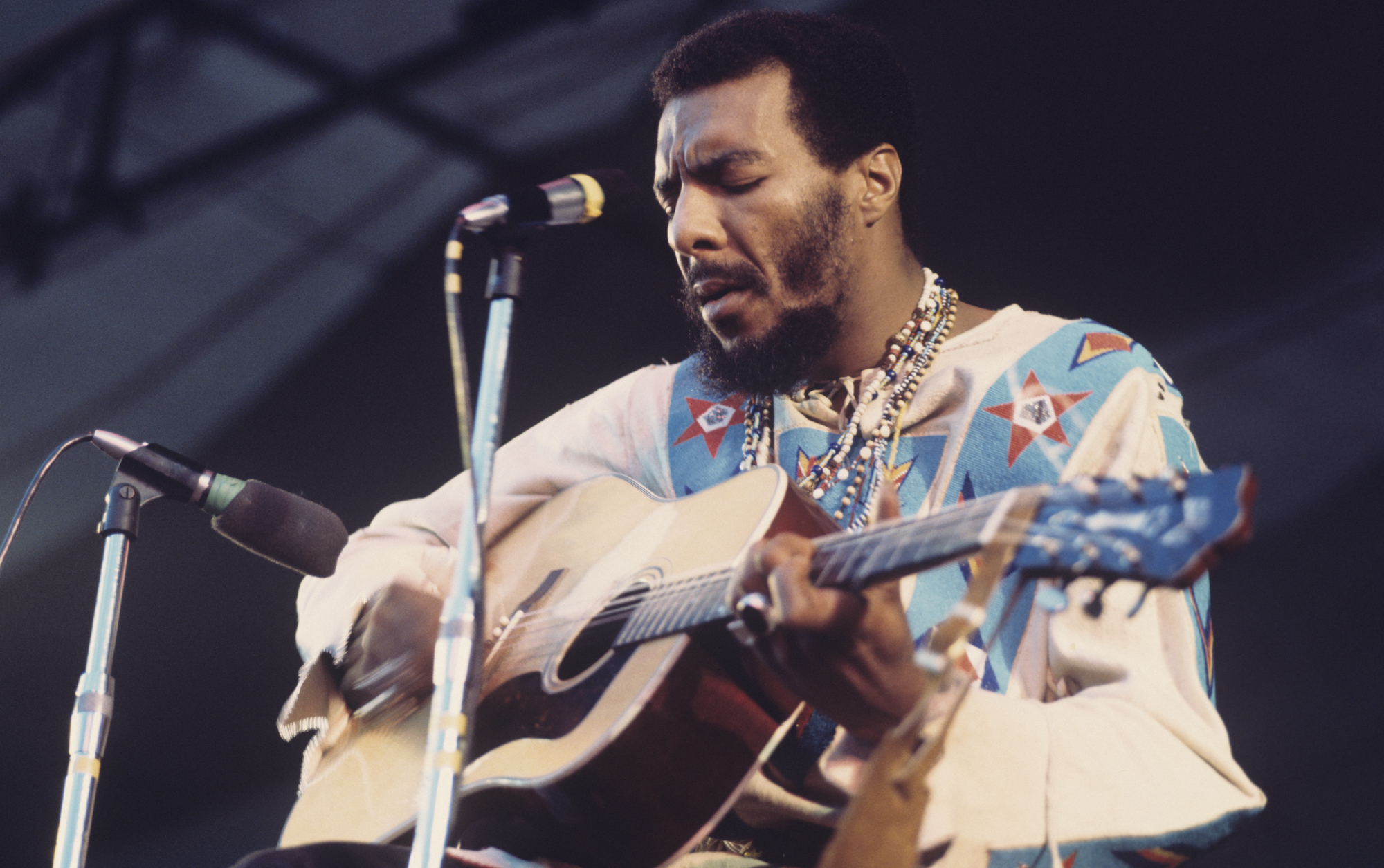
“I mentioned him earlier as someone I took notice of, and it's with good reason. If you want to be a great rhythm player, I urge you to watch Richie Havens. But you really have to listen closely and understand what he's doing because it's just so incredible. What Richie Havens was capable of doing with his right hand was downright insane.
“Again, I’ve never really heard anything like that, but when I did, it made a huge impact on me in terms of what rhythm playing could be and should sound like within the structure of a song.”
5. Steve Marriott
“I've always loved Humble Pie; Steve Marriott was a huge part of why. Steve was no doubt a very respectable lead guitarist, but his rhythm playing was super-concrete to the point of literally being immovable.
“I saw Steve at the Fillmore as a much younger man, and what I saw had an indelible effect on me as a young guitarist. Humble Pie, and Steve’s playing was a big part of what I had in mind when Kiss first started.”
6. Malcolm Young
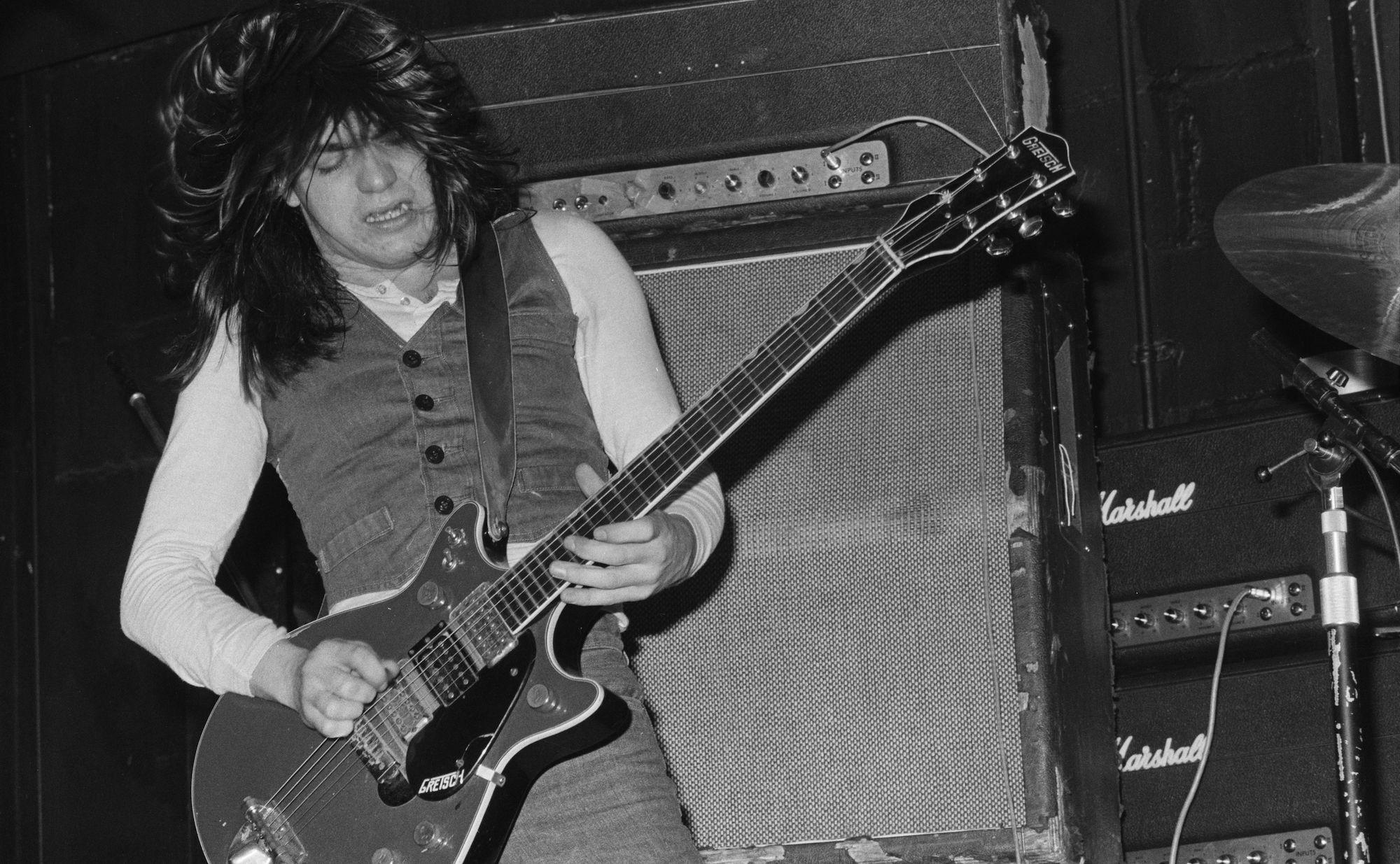
“He came after me, but I have to mention Malcolm Young. Of course, we know that he's one of the greatest rhythm players of all time. If you spent any time listening to AC/DC's music, you'd know that while Angus is an incredible lead player, Malcolm Young is clearly the foundation that allows Angus to do what he does so well.
“It’s not entirely the same, and Kiss is a different band from AC/DC, but I do have a similar mentality. And like I said earlier, if you understand what Kiss does as a band, you can hear that, especially when we play live.”
7. Jimi Hendrix
“Of course, there's Jimi Hendrix. I saw Hendrix twice with Mitch Mitchell, and that was like watching something from another planet. It was utterly indefinable.
“I mention Mitch Mitchell because, in Kiss, Eric [Singer] will often say he follows me and watches me for the changes. The relationship between a rhythm player and a drummer is significant, just as significant as the drums and bass. I learned that early on. Seeing Jimi was just so inspirational to me.”
8. Neil Young
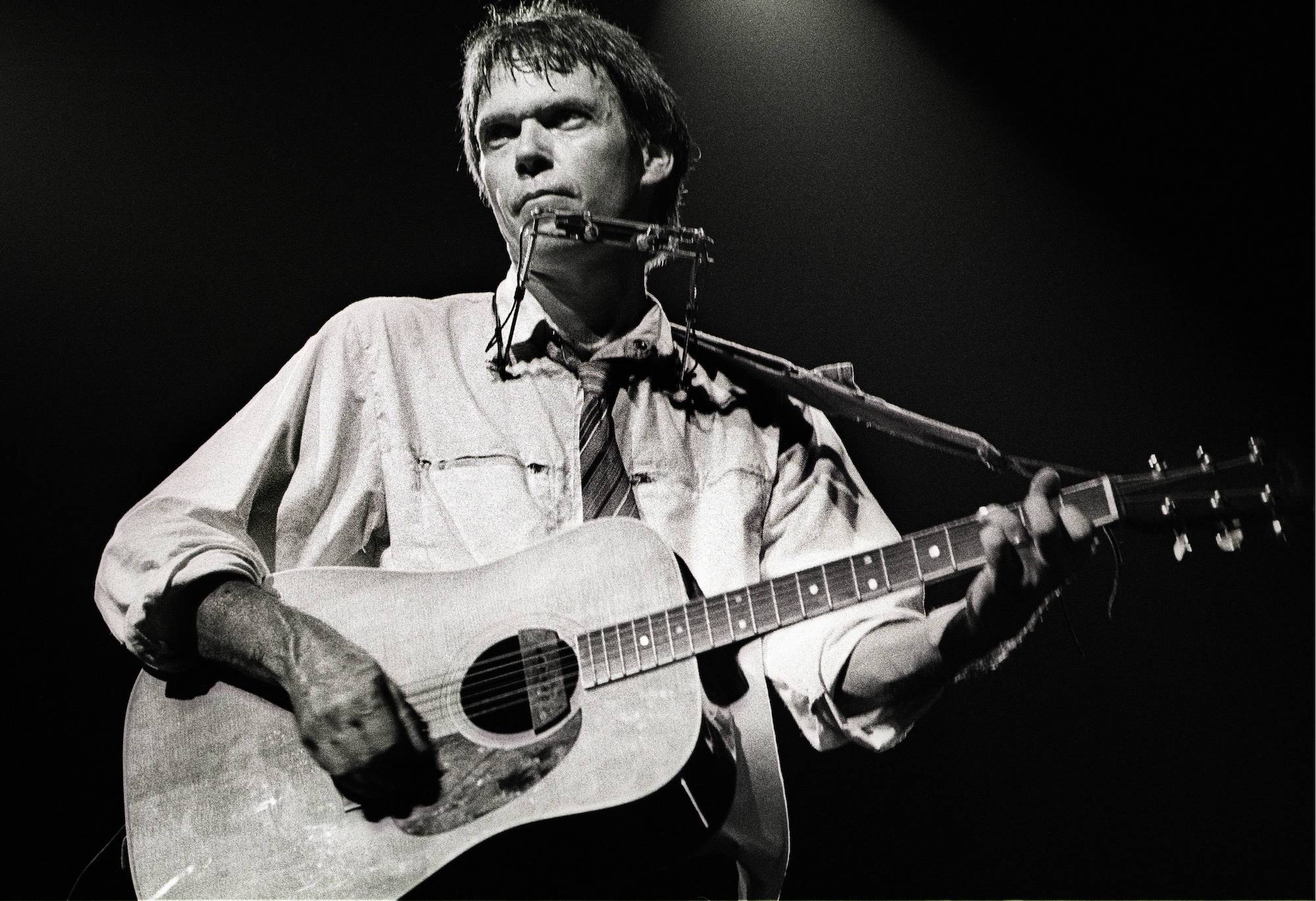
“Another, who is perhaps less obvious than others, would be Neil Young. As an acoustic player, Neil is just fantastic. I actually prefer his acoustic playing over his electric playing, but that's just a matter of taste.
“Neil Young has such subtlety in his rhythm playing and his chords. And his picking is just terrific. He's a truly great guitar player with a lot of nuance that I've always been drawn to. But that’s not to say he’s not a great electric player; it’s just to say that I prefer what Neil does acoustically more.”
9. Paul Kossoff
“I remember the first time I heard Paul Kossoff because it was extremely meaningful. I was in the car, and I was driving, but I hadn't had my license for long. But when I turned the radio on and heard Paul Kossoff playing on [Free’s] All Right Now, I had to pull over and catch my breath.
“His command of chords was deceiving in what appeared he was doing vs. what he was actually doing. And the solo was more about what he didn't play than what he did play. I'll take that over the most overly powerful or supposedly exquisite solo.”
10. Lindsey Buckingham
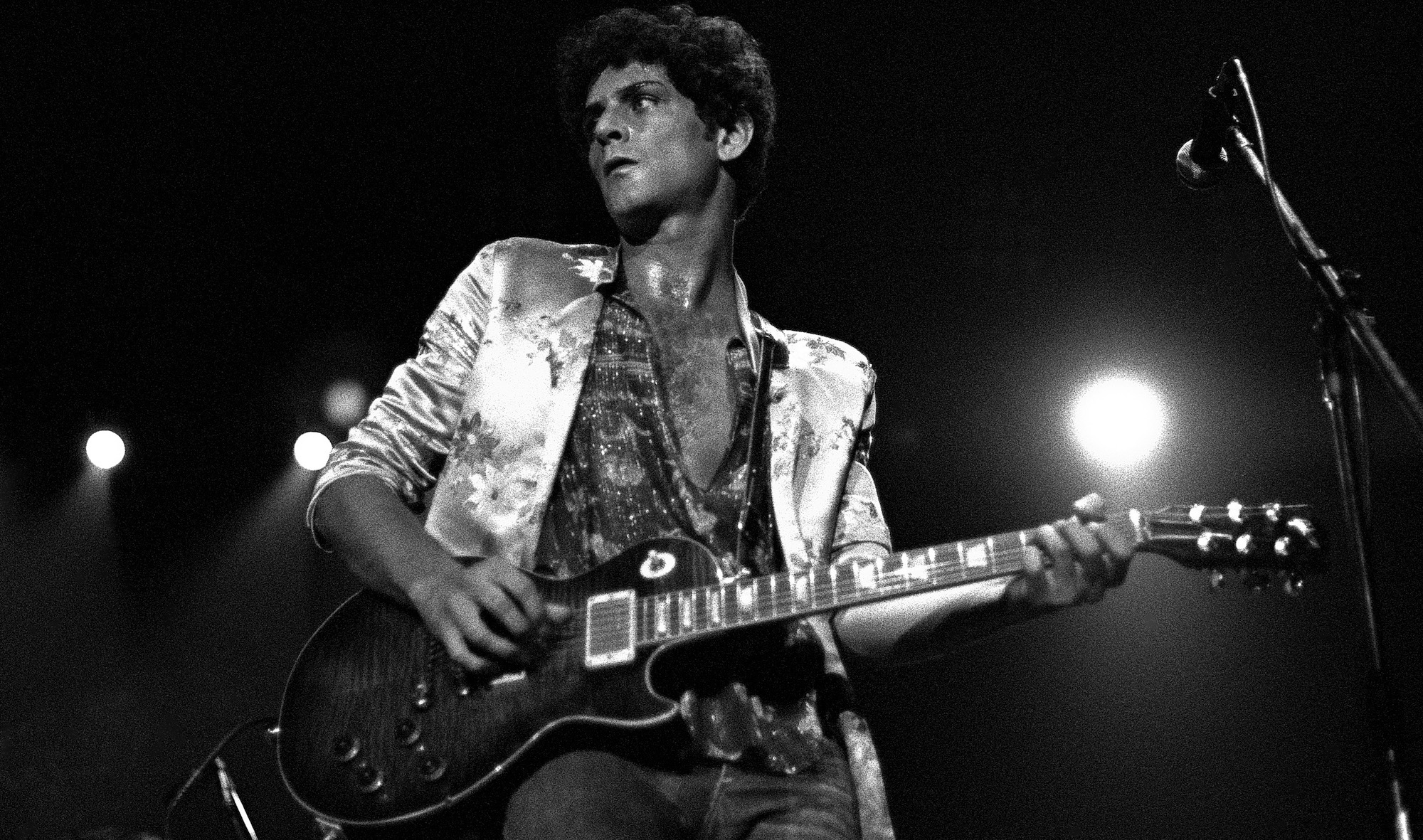
“I can't believe I almost forgot Lindsey, but I mean, my God, the guy does the impossible. But what's seriously great about his playing is that it's kind of like a hybrid of Travis picking and a very traditional folk style that he really created all on his own.
“What Lindsey Buckingham does is timeless and genuinely unmistakable, and it made those classic Fleetwood Mac albums very special. I've never really heard anything like it or anyone else play the way he does.”
11. Nancy Wilson
“Nancy is such a great guitarist. And let me just say that I hate the idea of people saying, 'Oh, well, she's good for a woman.' Why do people have to say that? Saying that completely negates what follows, no matter what you say. You can follow that with, 'She's so good,' but it loses all meaning and impact. So, Nancy is great, period. No qualifiers.
“That woman is a fantastic rhythm player and, again, another fingerpicker. That in and of itself inspires me because I've always been drawn to players adept at something rooted in fundamentals and basics.”







